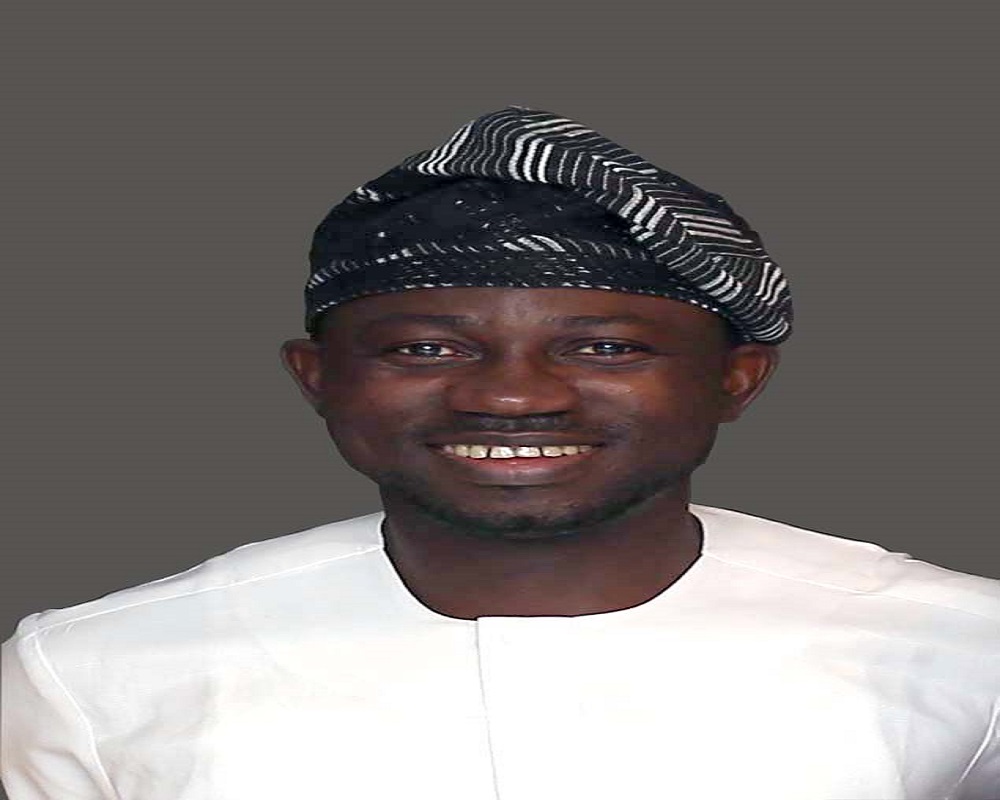Broadcasting
How BlackHouse Media is Spearheading the Future of PR and Communications in Africa

By David Adeleke
BHM, a global Public Relations and Communications agency based in Nigeria and the UK, is launching the first-ever Africa Public Relations and Communications Report on July 16, 2022.

This development comes five years after the BHM launched the Nigeria Public Relations Report to place Nigeria on the global communications industry map by gathering insights and analysis from experts and examining the challenges and opportunities within Nigeria’s fast-growing Public Relations industry.
The success of the Nigeria Public Relations Report has revealed the need to replicate the quality and depth of insights on a continental scale. 2022 will make it two years since the COVID-19 pandemic struck and changed life as we know it forever. It has impacted every sphere of human life, from interpersonal relationships to corporate communications and international relations.
For Africa, these changes were profound and mostly unfamiliar. This was partly due to high levels of poverty and illiteracy and the insufficient quality of the infrastructure that make health communication more seamless and effective.
Africa’s cities are home to a growing population of 600 million people, and they account for over 50% of the continent’s GDP, according to the United Nations Economic Commission for Africa (ECA). When this is viewed against the backdrop of the sudden unemployment crisis caused by the pandemic, it is easy to understand the massive impact that COVID-19 had on the economy. Firms and businesses, especially SMEs, which account for 80% of employment in Africa, have been shaken to their core, with the cost of living jumping by over 100% in the past year.
As the search for solutions to help adjust to this new reality continues, the dissemination of quality information will help the continent and cross-border relations. This is why the new Africa Public Relations Report aims to bridge the divide and reduce the staggering effects of the pandemic on the countries in the continent and their various PR and Communications industries.
Access to this type of information will help influence policymaking and corporate practice on every level of human association within businesses, schools, families, public service, and so on.
This visible need for data-inspired the World Bank to create the World Development Report for 2021, fittingly tagged “Data For Better Lives”. According to the bank, the availability of an accurate compendium can propel social and economic growth on all levels in the world ecosystem. Data gathered from one source can go on to inform change in many ways.
The numerous benefits of high penetration of information can be seen in other countries where similar reports are created regularly. In Los Angeles, the Relevance Report is handled by the Centre of Public Relations at the University of Southern California.
The report is published annually alongside the Global Communications Report and is a collection of essays and trend pieces from PR industry leaders and USC academics. This year’s edition addresses the effects of the COVID-19 pandemic and the social justice protests on the PR industry.
Contributors include corporate executives from leading global PR firms like Golin, Edelman and Peppercomm. It also consists of input from top communication leaders from Google, Disney, AEG, and IBM.
In New York, PRovoke Media, formerly known as the Holmes Report, helps provide knowledge, information and analysis of the PR business and its stakeholders. They do this through provokemedia.com, where they publish regular case studies, original reports, and research. They also publish a free weekly global newsletter featuring professional industry insights and a crisis review, which chronicles the lessons learned from the biggest PR crises of the year.
By taking a leaf from its book and that of other global PR powers, BHM positions itself as a major industry player in it for the long run. It will expand and serve as a reference point for the PR and Communications industry across Africa. The Africa Public Relations report will serve as a well-rounded mirror that helps the world understand the way Africa sees itself, the way the world sees Africa, and the way Africa sees the world.
David Adeleke is a writer, media analyst, and communications strategist with over seven years of experience in media and technology.
Broadcasting
DStv Loses 1.4m South African Subscribers in Two Years

DStv, owned by MultiChoice, has lost far more subscribers in South Africa in the last two years than it appears from its reporting, according to Moneyweb.

According to the group, its “active” subscriber base declined from eight million on 31 March 2023 to seven million on 31 March 2025.
The drop in subscribers accelerated from 400 000 in the prior year to 600 000 last year.
However, this is only the specific number of active customers on that date.
DStv is very aggressive in ensuring that customers are active at the end of March each year (and at the end of September) given its financial reporting.
It introduced a new metric in FY21 which measures customers who had an active subscription at any point within the 90 days before the reporting date.
On this measure, its base dropped from 9.3 million in March 2023 to 7.9 million in March 2025, equal to 1.4 million.
The declines are across the board in its premium, mid-market and mass market segment, but the first two are leading with drops of 22% to 23% each.
The premium segment includes the Premium and Compact Plus packages, while mid-market comprises its Compact and Commercial packages.
The mass market segment has seen an 11% decrease in subscribers over the last two years.
In its rest of Africa business, the decline on the 90-day active metric is even worse. Here, the number of subscribers has dropped from 14.2 million in March 2023 to 10.7 million in March 2025.
This is a 25% decline, or 3.5 million subscribers. In this business, the premium segment is flat over two years, mid-market is down 14% and mass market by 29%.
Its business in Nigeria continues to battle currency devaluation, with its share of subscription revenue across the African operations dropping from 44% in FY23 to just 26% in FY25.
In rand terms, subscription revenue in Nigeria is down from R9.1 billion two years ago to R3.5 billion now.
The group took a R2.8 billion foreign exchange hit in Nigeria, with the naira depreciating 44%.
This, coupled with other forex impacts, saw its R1.3 billion reported trading profit in Africa swing to a R800 million loss.
Somehow it tries to illustrate a R2.3 billion “organic” profit, before the currency impacts.
Price increases (averages of 5.6% in 2023 and 5.7% in 2024) were not enough to offset the subscriber declines.
Subscription revenue in South Africa has declined from R27.3 billion in FY23 to R25.7 billion in the year to end March 2025.
Not only is the macro-economic environment weighing on consumers, it also highlights the impact of “piracy, streaming options and social media”.
Broadcasting
How to Turbo-charge Your Productivity as a Backend Engineer!

By Seye Folajimi
I start each day with one goal: to be as efficient and focused as possible. A developer’s life is full of interruptions, and without good time management, it’s easy to fall behind. As a Backend Engineer at Moniepoint, I’ve assembled the toolkit that helps me and I believe by extension any technical professional to deliver results consistently.

In this feature article, I’ll share the tools and habits that have practically multiplied my productivity and sharpened my focus on the job.
My Daily Toolbox
I rely on a handful of core tools every day. IntelliJ IDEA and Visual Studio Code are my primary editors: IntelliJ for heavy backend work (it’s packed with features) and VS Code for quick edits or scripting. When testing APIs or debugging endpoints, Postman is indispensable for sending requests and saving environments. For spotting code or configuration differences, I often paste text into Diffchecker.com and let it highlight the changes. And for database work, MySQL Workbench provides a visual SQL editor and schema designer that saves me a ton of time. Dear professional, using the right tool for each task means fewer context switches and a smoother workflow.
Productivity Strategies That Power My Workflow
Beyond raw tools, I use structured habits to stay on track. I break the day into focused blocks and assign each chunk to an activity (coding, reviews, meetings, etc.). This time-blocking approach improves focus by letting me give my full attention to one task at a time. I also apply the Eisenhower Matrix to categorize tasks by urgency and importance; this ensures I tackle critical work first. Rather than flitting between emails, calls, and code, I batch similar tasks into dedicated slots. Some of my core techniques include:
Time Blocking: I assign specific blocks of time for coding, meetings, code reviews, and so on. This means I can dive deep into one task without switching contexts. (For example, I often use 25-minute sprints followed by a 5-minute break – the classic Pomodoro cycle – to keep my mind sharp.)
Prioritization (Eisenhower Matrix): Each morning I list my tasks and sort them by urgency vs importance. The Matrix helps me “do first” what truly matters and “delegate or drop” low-value items. This clarity prevents me from getting bogged down by busywork.
Automation: Whenever I catch myself doing something repetitive, I stop and ask, “Can I script this?” Whether it’s a shell script for routine commands or a CI/CD pipeline for deployment, automation frees up hours. Reducing manual repetition lets me focus on more critical work. Even simple automations (backups, report generation, test harnesses) add up to big time savings.
Notification Discipline: I turn off unnecessary notifications and check email/Slack only at scheduled times. By minimizing interruptions, I stay “in the zone” longer and preserve my cognitive energy.
Building My Custom Focus Extension: The Hot Gate
I even took matters into my own hands by coding a productivity tool from scratch, i called it “THE HOT GATE” .
The “Hot Gate” refers to the ancient Battle of Thermopylae in 480 BCE, a famous event in Greek history. It’s where King Leonidas of Sparta and a small force of Greeks (famously 300 Spartans) held off the vast Persian army of Xerxes I for several days.
The extension:
Blocks distracting websites during deep work sessions.
Organizes tabs to reduce clutter.
Unlocks distractions only during breaks.
I built it using JavaScript and browser APIs. One limitation: I can still turn it off manually. I’m considering adding a restriction to prevent that—but it’s still a local extension. Maybe someday I’ll publish it.
Breaks and Rewards
I’ve learned that smart breaks actually boost productivity. I take 2–4 minute strolls every hour, prompted by reminders from our infrastructure team. It’s refreshing and clears my head.
After big wins (like deploying a major feature or solving a tough bug), I reward myself—whether it’s a nice meal, a movie night, or just a chat with friends. These rewards keep me motivated and prevent burnout.
Wrapping Up
In my experience, combining the right tools with disciplined habits is what unlocks consistent high performance.
I’m constantly refining my setup—automating repetitive tasks, organizing my schedule better, and building systems that help me stay in the zone.
At Moniepoint and beyond, delivering quickly and reliably takes more than just code. It takes systems thinking, self-awareness, and the discipline to evolve your workflow over time.
By adopting these practices, I’ve become both more productive and more fulfilled. And I’m hoping the story is same or at least similar for you after reading this.
Seye Folajimi is a backend engineer with Africa’s fastest growing financial institution, Moniepoint Inc.
Broadcasting
African Craftsmanship Takes Center Stage at TALES 2025 in London

This summer, London’s West End will transform into a vibrant showcase of African excellence as TALES (The African Lifestyle Experience) returns with its most ambitious edition yet: Reimagine 2025.

A Luxury Cultural Experience
Hosted at Luxury Promise, 28 Cavendish Square, just off Oxford Street, the event will run from July 25 to August 3, 2025, offering ten days of curated experiences, fashion-forward storytelling, and cultural immersion.
With over 70 curated brands spanning fashion, beauty, art, music, and home décor, TALES 2025 will spotlight Africa’s brightest creative talents and celebrate craftsmanship across the diaspora.
Key Highlights
- Exclusive African Fashion & Craftsmanship Discover one-of-a-kind pieces, from bold fashion in traditional textiles like Aso Oke, Adinkra, and Bantu, to luxury handmade beauty products and bespoke interiors.
- Fireside Chats with Industry Icons Intimate conversations with trailblazers and tastemakers exploring the future of African entrepreneurship, culture, and design.
- Kidpreneur x The Veteran A standout feature returns, bridging generations of innovation by spotlighting rising Gen Z entrepreneurs alongside industry legends like Gloria Ije Anyaehie-Coker, founder of GIA1 Fashion.
- Exclusive Travel Offer with Air Peace TALES is partnering with Air Peace to offer a 15% flight base fare discount for brands and attendees flying to London, strengthening connections within the diaspora.
A Global Movement Powered by Bellafricana
Backed by Bellafricana, a platform empowering African creative entrepreneurs across 18+ countries, TALES champions authentic African stories, craftsmanship, and visibility on the world stage.
Supported by the City of Westminster
The City of Westminster proudly supports TALES 2025, reinforcing London’s commitment to diversity, innovation, and inclusive cultural celebration. The event will be featured across Oxford Street’s Instagram and website, ensuring maximum visibility.
Why It Matters
Following the runaway success of TALES 2024, which featured 40 brands and attracted a global audience, Reimagine 2025 raises the bar. As London’s fashion and cultural scene increasingly embraces diversity and authenticity, TALES 2025 is a timely and necessary celebration of African brilliance.
Whether you’re a fashion enthusiast, culture lover, or global tastemaker, TALES 2025 is where Africa’s future-forward creativity meets London’s cultural heartbeat.
Event Details
Venue: Luxury Promise, The Corner Showroom, 28 Cavendish Square, London W1G 0DB 


 News2 days ago
News2 days agoLasaco Assurance to Invest in Technologies, Systems to Deliver Value to Clients

 E-Financial2 days ago
E-Financial2 days agoNIBSS National Payment Stack to Transform Nigerian Instant Payments

 E-Financial2 days ago
E-Financial2 days agoCBN Reaffirms Banking Sector Resilience as Forbearance Ends

 News1 day ago
News1 day agoPalmPay, Glo Launch “Recharge and Win Bonanza 2” with Exciting Prizes

 General News1 day ago
General News1 day agoBridging the Digital Divide: Over 700 Young Africans Empowered by Paradigm Initiative

 General News1 day ago
General News1 day agoIHS Nigeria, United Nations Global Compact Host High-Level Dialogue on Sustainability and Greener Business Practices in Nigeria

 News1 day ago
News1 day agoHow and Why N210 Trillion is Missing in NNPCL – CFO

 Telecom2 days ago
Telecom2 days agoParadigm Initiative Warns of AI-Driven Hate Speech, Urges Global Tech Reform




























